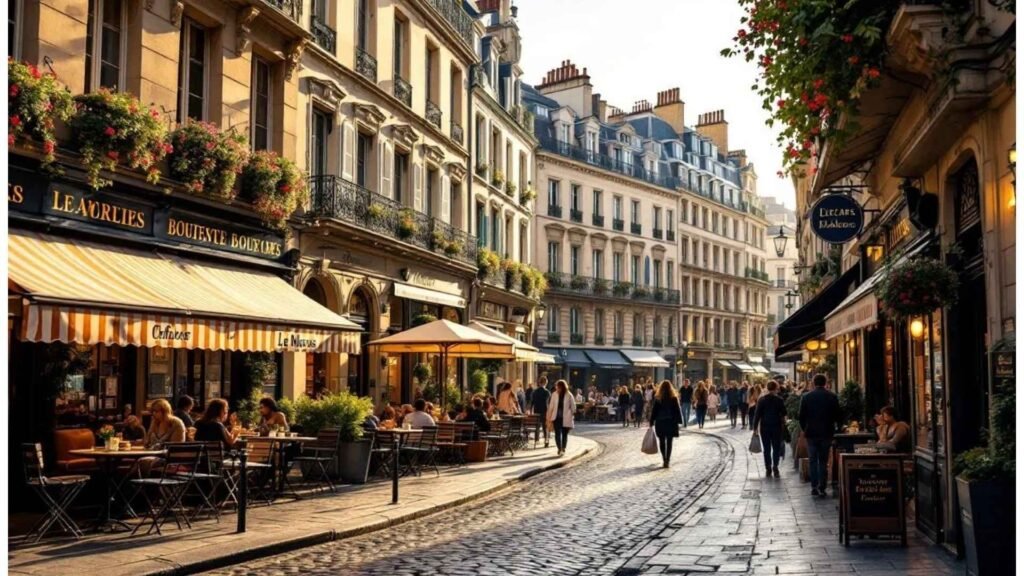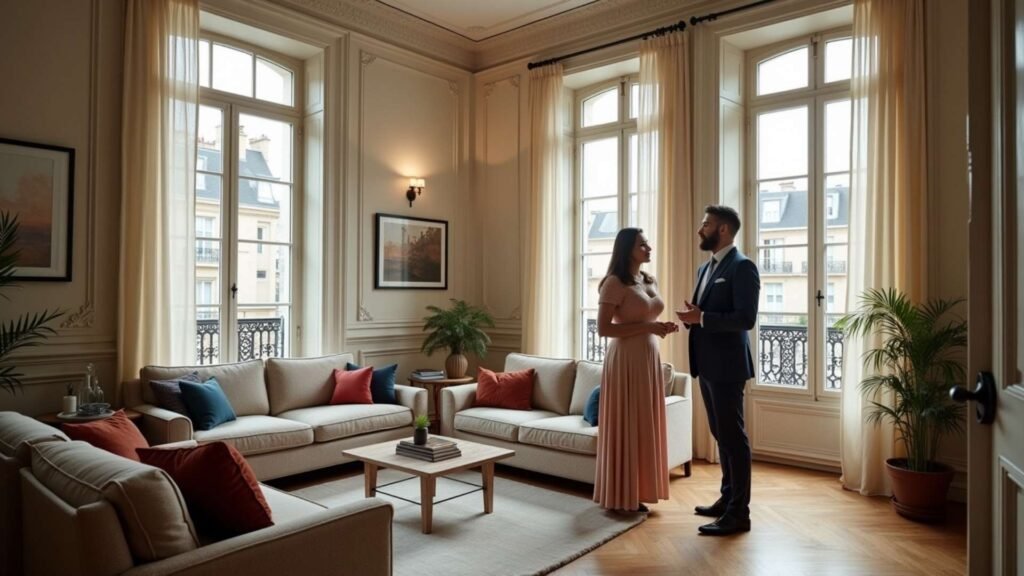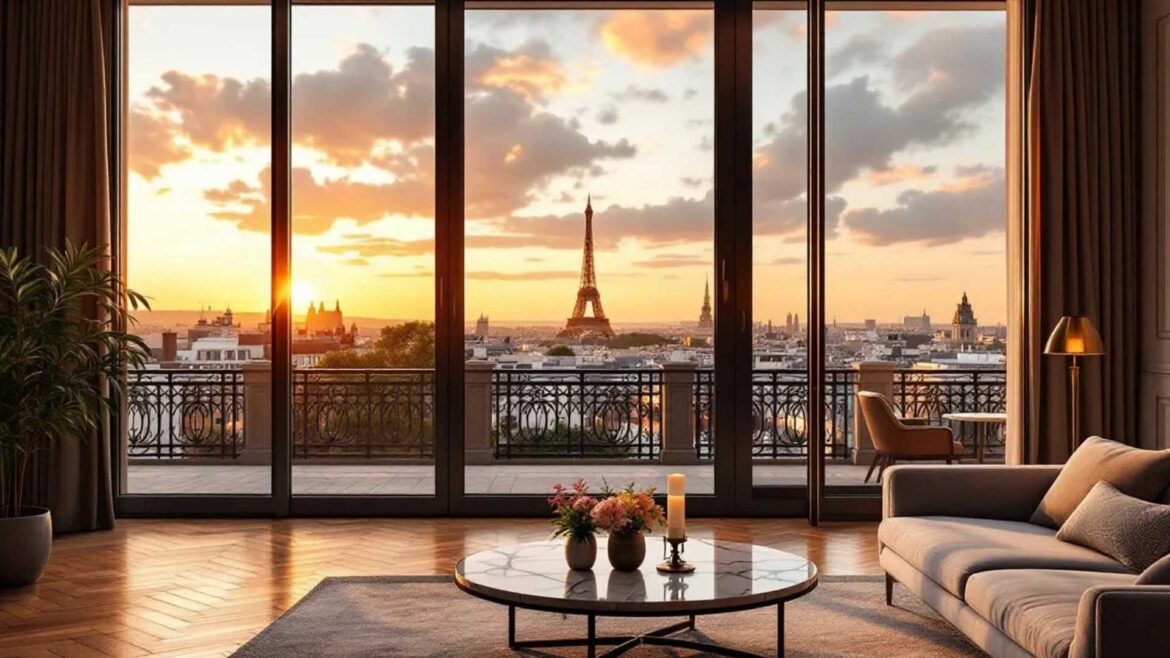Paris is not only the city of romance and culture but also one of the most stable and prestigious real estate markets in the world. With its protected historical architecture, limited land supply, strong tourism economy, and high living standards, the French capital has become a safe haven for both local and international investors.
The French government’s property ownership freedoms for foreigners, combined with favorable tax incentives, make Paris one of Europe’s most attractive destinations for long-term property investment.
1. Market Overview
The Paris property market is known for its low risk – stable return balance.
- Consistent Price Growth: Over the last decade, Paris property prices have increased by nearly 50%, with arrondissements 1–8 ranking among the most expensive in the world.
- Limited Supply, High Demand: UNESCO heritage zones and strict construction regulations keep new developments rare, preserving the value of existing properties.
- Diverse Demand Sources: In addition to tourists, the city attracts students, diplomats, professionals in fashion, finance, and technology sectors.
- Interest Rate Influence: Even during higher interest rate periods, Paris remains resilient thanks to its global prestige and desirability.
2. Key Investment Districts

Paris is divided into 20 arrondissements, each offering unique opportunities:
- Central Arrondissements (1–8): Prestigious areas such as the Louvre, Champs-Élysées, Saint-Germain-des-Prés, and Le Marais. Luxury apartments, flagship retail stores, and prime office spaces dominate here.
- Emerging Districts (10–20): Neighborhoods like Canal Saint-Martin, Belleville, and Montmartre attract younger residents and creative professionals. Lower entry prices and strong rental demand create potential for capital appreciation.
- Greater Paris & Suburbs: La Défense (Europe’s largest business district) and Saint-Denis (boosted by 2024 Olympics infrastructure) are attractive for office, hotel, and mixed-use developments.
3. Types of Investments

Paris offers multiple segments for investors to explore:
- Residential Property: Long-term rentals offer steady income. In tourist areas, short-term rentals (Airbnb) can yield higher returns, though regulations apply.
- Commercial Property: Luxury boutiques, restaurants, cafés, and art galleries benefit from high tourist and local spending.
- Hospitality Sector: With over 20 million annual visitors, boutique hotels and luxury accommodation projects can achieve strong occupancy and rates.
- Office and Coworking Spaces: Paris is home to major start-up hubs like Station F, driving demand for flexible workspaces.
4. Legal & Tax Considerations for Foreign Investors
The process is transparent and accessible for foreign buyers:
- Ownership Rights: Foreigners can freely purchase residential and commercial properties in France.
- Acquisition Costs: Expect around 7–8% of the purchase price in notary fees, stamp duty, and other taxes.
- Rental Income Tax: Typically ranges between 20–30%, with certain deductible expenses.
- Rental Regulations: Some areas have rent caps; short-term rentals require permits in many districts.
- Financing Options: Foreign buyers may secure mortgages covering up to 70% of the property value.
5. Risks and Considerations
Like any market, Paris has its challenges:
- Liquidity: Prime central properties sell faster, while emerging areas may require longer selling periods.
- Renovation Costs: Historical buildings can have high restoration expenses, often requiring municipal approvals.
- Currency Exchange Risk: Investors operating in non-euro currencies should consider exchange rate fluctuations.
- Regulatory Restrictions: Rent control and short-term rental regulations can limit potential returns.
6. Investment Strategies
Selecting the right strategy is crucial for maximizing returns:
- Luxury Property in Prime Locations: Low risk, steady appreciation, and prestige—ideal for targeting diplomats and corporate tenants.
- Mid-Range Properties in Emerging Areas: Lower purchase price, higher growth potential, and strong rental yields.
- Commercial Property in Tourist Hotspots: High rental income potential from restaurants, cafés, and retail stores.
- Mixed-Use Developments: Combining residential, retail, and office space to diversify risk.
Conclusion
Paris remains one of Europe’s most secure and profitable real estate markets. Its combination of historical prestige, limited supply, global demand, and diverse investment opportunities makes it a compelling choice for both conservative and growth-oriented investors.
By selecting the right district, understanding the legal and tax framework, and adopting a strategic approach, investors can enjoy both long-term capital appreciation and stable rental income.

